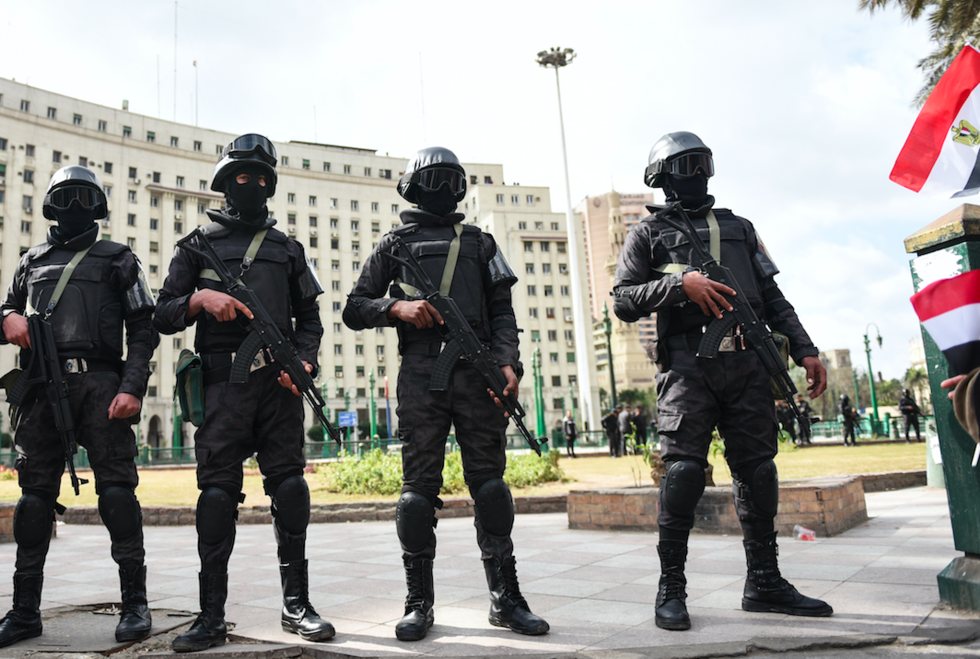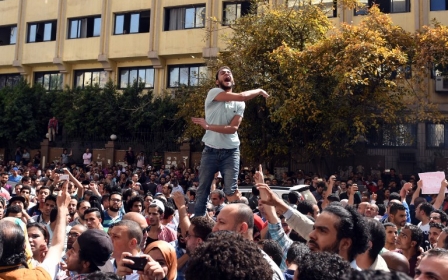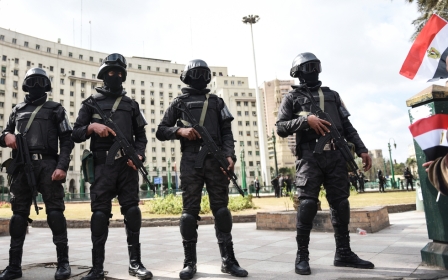Egyptian activist found 'tortured' amid wave of pre-protest arrests

An Egyptian activist was found by the side of a desert road with his body bearing evidence of torture, relatives said, as security forces continued a wave of mass arrests ahead of demonstrations planned for Monday.
Khaled Abdel Rahman, from Alexandria, is in intensive care undergoing surgery after passersby discovered him on the side of a desert road on the outskirts of the capital Cairo, his sister Reem Abdel Rahman said.
“His body is covered in marks of beating and torture – the electric shocks applied to his genitals were so severe that they caused atrophy,” she wrote on Facebook.
Abdel Rahman was found on Friday afternoon, less than a day after he was arrested during a raid on his home by security forces, relatives said.
The raid was part of a wave of arrests undertaken by police in cities across Egypt ahead of Monday's protests.
Dozens of people, including activists and lawyers, were detained overnight on Thursday and into Friday as police try to head off mass demonstrations against the government's decision to hand control of two strategic Red Sea islands over to Saudi Arabia.
Protests against the deal first broke out last Friday, with thousand of people taking to the streets of Cairo and shouting anti-government slogans.
President Abdel Fattah al-Sisi has rejected the criticism and on Saturday warned of “constant attempts from inside the country and outside it to stop progress towards a modern Egypt”.
During a televised speech to mark the final withdrawal of Israeli troops from the Sinai Peninsula in 1985, Sisi said that “our Egypt today has stronger safety and security, and is taking robust steps towards growth”.
Activists have drawn parallels between the alleged ill treatment of Abdel Rahman and the killing of Giulio Regeni, an Italian doctoral student whose body was found on a road just outside Cairo in February, bearing clear signs of torture.
Reuters report, legal action
Reuters reported on Thursday that according to intelligence sources, Regeni was detained by Egyptian police and transferred to a compound run by security forces on the day he disappeared, 25 January, the day Egyptians mark the anniversary of the 2011 uprising that toppled former President Hosni Mubarak.
The report, which cites anonymous intelligence and police sources, directly contradicts statements from the government that insist security forces never had contact with Regeni, who was researching and writing about labour struggles in Egypt.
Egypt's Interior Ministry has filed a legal complaint against the head of the news agency's Cairo bureau, Michael Georgy, over the report.
Egyptian daily al-Masry al-Youm on Friday quoted ministry sources as saying that the complaint accused the agency of “publishing false news aimed at disturbing the peace...and harming Egypt's reputation”.
New MEE newsletter: Jerusalem Dispatch
Sign up to get the latest insights and analysis on Israel-Palestine, alongside Turkey Unpacked and other MEE newsletters
Middle East Eye delivers independent and unrivalled coverage and analysis of the Middle East, North Africa and beyond. To learn more about republishing this content and the associated fees, please fill out this form. More about MEE can be found here.




